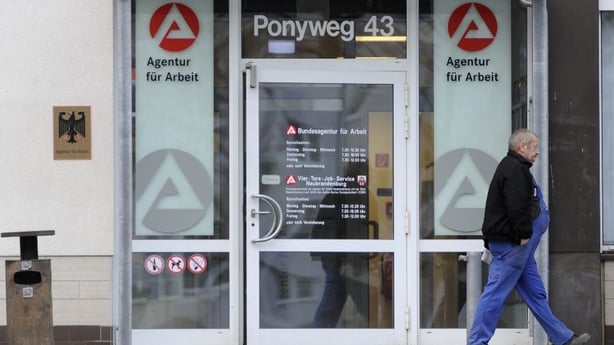German factory activity rose in November to its highest level in three months, suggesting Europe's largest economy is shaking off a slowdown in emerging markets and the Volkswagen emissions scandal.
Markit's purchasing managers' index (PMI) for manufacturing, which accounts for about a fifth of Europe's largest economy, rose to 52.9 in November from 52.1 the previous month.
That was slightly above a Reuters consensus forecast and a preliminary estimate of 52.6.
"For now, it seems as if Germany's goods-producing sector is largely unaffected by the VW emissions scandal," said Markit economist Oliver Kolodseike.
"It is especially encouraging to see that new export business rose at the strongest rate in 21 months, despite the growth slowdowns seen in emerging markets," he added.
Some of the participants in the survey said demand from abroad had been boosted by the weak euro, which recently fell to a seven-month low against the dollar on expectations of further easing by the European Central Bank.
A survey by the Munich-based Ifo economic institute last week found German manufacturers, especially in the automotive sector and chemicals industry, were optimistic about future exports due to the weaker euro.
Output at factories expanded at its fastest pace in three months, led by consumer and investment goods producers, while employers also continued to add to their headcount.
Lower commodity and energy prices also pushed down input costs. Despite this, German manufacturers raised selling prices marginally for the first time in three months.
German jobless rate falls to lowest level on record
Meanwhile, Germany's unemployment rate fell to 6.3% in November, the lowest level since reunification in 1990, reinforcing expectations that private consumption will continue to support growth in Europe's largest economy.
The seasonally adjusted unemployment total fell last month by a stronger-than-expected 13,000 to 2.772 million, data from the Federal Labour Office showed today. Economists polled by Reuters had expected it to drop by 5,000.

The data came after a bout of weakness during the summer, driven by slowdowns in China and other emerging markets, which raised questions about the strength of exports and the broader economy.
Economists said that unemployment came down despite the fact that the industry has clearly had a couple of difficult months over the summer.
They added that they expected the German economy to grow by 0.3% in the final quarter of this year - on a par with its performance in the third quarter, when private and public consumption drove growth.
But they warned that security-related risks represented a potential threat to the economy. Germans have been particularly worried about possible attacks on Christmas markets following the November 13 attacks in Paris which killed 130 people.
Data yesterday showed monthly retail sales slipping but that reading is notoriously volatile and other figures have pointed to private consumption holding up in the fourth quarter, with inflation remaining low and a survey showing Germans becoming more willing to buy.

